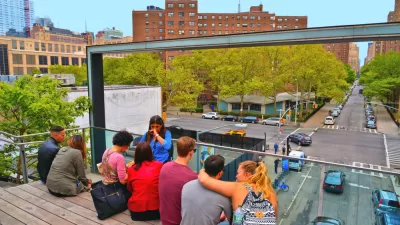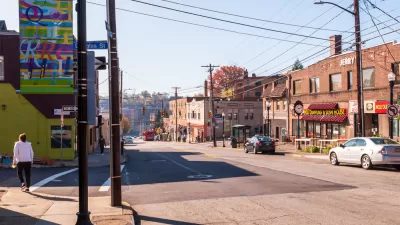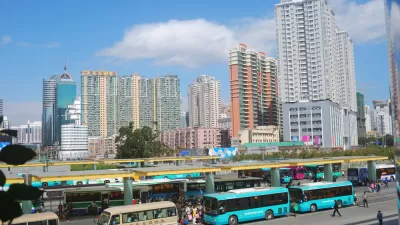One common argument against attempts to control sprawl near declining cities is that the problem is the fault of mismanaged city government.

When I was arguing with someone about sprawl in declining "legacy cities," I ran into the following argument (loosely paraphrased): "The reason places like Detroit are declining isn't because of sprawl but because of municipal corruption and mismanagement. Fix that instead of worrying about suburbia."
At first glance, this argument seems appealing: after all, one former mayor of Detroit is in prison, and Detroit's low level of public services is certainly highly suspicious.
Nevertheless, I am not sure the argument is provable, because there is no easy way to quantify mismanagement; thus, there is no objective way to verify that Detroit is any more mismanaged than more prosperous cities.
There appears to be little evidence that Detroit is unusually corrupt: more affluent cities and suburbs have had equally scandalous governments. For example, Atlanta has gained population for two decades in a row, despite having a mayor who served prison time for tax evasion and a major scandal in its public schools (involving over 100 teachers and principals who rewrote students' incorrect answers on standardized tests).
Fast-growing suburbs have also had questionable leadership: Orange County, California declared bankruptcy in 1994 because of some foolish investment decisions and has a former sheriff who in 2009 collected over $200,000 in pension payments despite a felony conviction.
Detroit's decline also should not be blamed on fiscal liberalism: although Detroit's spending level in 2011 ($5437 per capita in direct expenditures) exceeded the national urban average, it spent about the same amount as Atlanta ($5408) and less than Nashville (just over $6200) or San Francisco (which spent over $11,000 per resident) (NOTE: more details are available in this database).
It seems to me more likely that Detroit's inadequate public services and fiscal problems are a result rather than a cause of its decline. When a community has an extremely poor population, it will, other things being equal, spend more money on poverty-related social services and have a weaker tax base. So, other things being equal, a resident of a low-income city such as Detroit will pay more and get less from government than a resident of a more middle-income city or a rich suburb. Similarly, a poor city should, other things being equal, have worse political leadership than a richer one, for the simple reason that when most of a city's middle class has fled to suburbia, its electoral talent pool should be smaller.
Some commentators have made the decline of Detroit a partisan issue, blaming Detroit's problems on 50 years of Democratic mayors. But this argument might confuse cause and effect: a city that loses its middle class will usually lose most of its Republicans, thus creating one-party rule. In fact, Detroit is an excellent example of this political shift: Detroit had Republican mayors from 1950 to 1962, who (like many Democratic mayors) bulldozed much of the city to build expressways to suburbia, thus facilitating Republican migration into the suburbs and destroying their own political base.

Planetizen Federal Action Tracker
A weekly monitor of how Trump’s orders and actions are impacting planners and planning in America.

Map: Where Senate Republicans Want to Sell Your Public Lands
For public land advocates, the Senate Republicans’ proposal to sell millions of acres of public land in the West is “the biggest fight of their careers.”

Restaurant Patios Were a Pandemic Win — Why Were They so Hard to Keep?
Social distancing requirements and changes in travel patterns prompted cities to pilot new uses for street and sidewalk space. Then it got complicated.

Platform Pilsner: Vancouver Transit Agency Releases... a Beer?
TransLink will receive a portion of every sale of the four-pack.

Toronto Weighs Cheaper Transit, Parking Hikes for Major Events
Special event rates would take effect during large festivals, sports games and concerts to ‘discourage driving, manage congestion and free up space for transit.”

Berlin to Consider Car-Free Zone Larger Than Manhattan
The area bound by the 22-mile Ringbahn would still allow 12 uses of a private automobile per year per person, and several other exemptions.
Urban Design for Planners 1: Software Tools
This six-course series explores essential urban design concepts using open source software and equips planners with the tools they need to participate fully in the urban design process.
Planning for Universal Design
Learn the tools for implementing Universal Design in planning regulations.
Heyer Gruel & Associates PA
JM Goldson LLC
Custer County Colorado
City of Camden Redevelopment Agency
City of Astoria
Transportation Research & Education Center (TREC) at Portland State University
Camden Redevelopment Agency
City of Claremont
Municipality of Princeton (NJ)






























